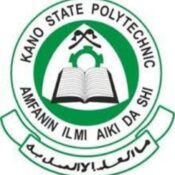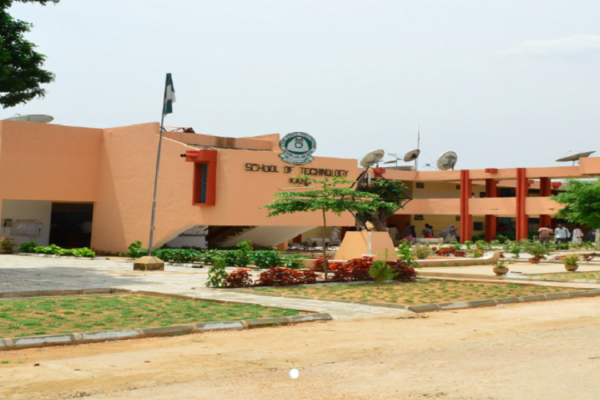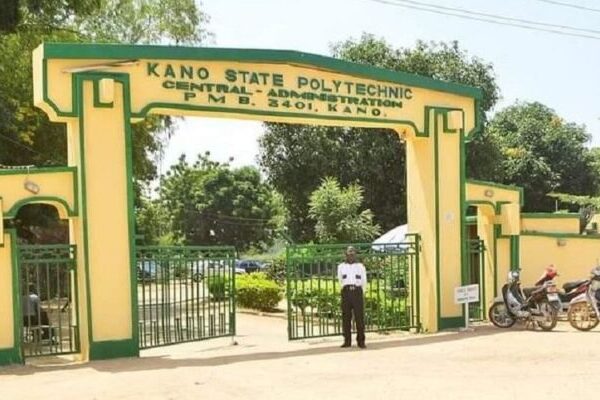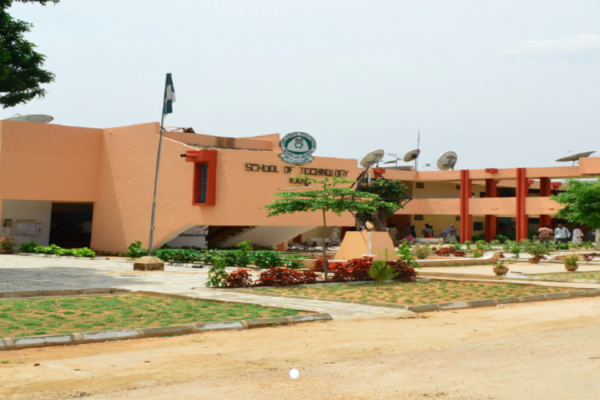
KANO STATE POLYTECHNIC, KANO
About
Kano State Polytechnic, Kano, is a prominent institution of higher education in Nigeria, known for its vocational and technical training programs. Here are the key details about the polytechnic:
Establishment and History
- Founded: Kano State Polytechnic was established in 1976 through the amalgamation of various training centers and schools of technology in Kano State.
- Purpose: The institution was set up to provide technical and vocational education and to produce skilled manpower to meet the industrial and economic needs of the region and the country.
Academic Structure
School of Technology
- Department of Electrical/Electronics Engineering
- Department of Civil Engineering
- Department of Mechanical Engineering, Department of Computer Science
- Department of Science Laboratory Technology
School of Management Studies
- Department of Accountancy
- Department of Business Administration and Management
- Department of Public Administration
- Department of Banking and Finance, School of Environmental Studies
- Department of Architecture
- Department of Building Technology
- Department of Urban and Regional Planning
- Department of Estate Management
School of General Studies
- Department of Languages
- Department of Social Science
- Department of Humanities
School of Rural Technology and Entrepreneurship Development
- Department of Agricultural Technology
- Department of Cooperative Economics and Management
- Department of Local Government Studies
Programs Offered: The polytechnic offers National Diploma (ND) and Higher National Diploma (HND) programs in various fields, including engineering, business administration, accounting, public administration, computer science, statistics, and environmental studies.
Admission Requirements
National Diploma (ND): Candidates need a minimum of five credits in relevant subjects, including English Language and Mathematics, from their O-Level examinations (WAEC, NECO, or equivalent). Additionally, they must pass the Unified Tertiary Matriculation Examination (UTME) and meet the institution’s cut-off mark.
Higher National Diploma (HND): Applicants must have completed a relevant ND program with a minimum of Lower Credit. They must also have completed a mandatory one-year industrial training program or have relevant work experience.
Accreditation
- Regulation: The programs offered by the polytechnic are accredited by the National Board for Technical Education (NBTE), ensuring they meet national standards for technical and vocational education.
Facilities
- Campus and Infrastructure: Kano State Polytechnic has multiple campuses with facilities that support learning, such as lecture halls, laboratories, workshops, libraries, and computer centers. There are also hostels and recreational facilities for students.
Governance
Management: The institution is governed by a Rector, who oversees the academic and administrative functions and is supported by other principal officers, including Deputy Rectors, Registrar, Bursar, and Librarian.
Research and Development
- Focus Areas: The polytechnic engages in research activities aimed at solving local and national challenges, with research areas often aligned with its academic programs, including engineering, environmental studies, and business management.
Community and Industry Engagement
- Collaborations: The polytechnic works with various industries, government agencies, and non-governmental organizations to provide practical training and employment opportunities for students. It also undertakes community service projects.
Student Life
- Student Union: The institution has an active Student Union Government (SUG) representing the student body and organizing extracurricular activities.
- Clubs and Societies: There are numerous clubs and societies that students can join, promoting a vibrant campus life and personal and professional development.
Challenges and Developments
- Challenges: The polytechnic, like many Nigerian institutions, faces challenges such as funding constraints, infrastructural deficits, and the need for more qualified staff.
- Recent Developments: Efforts are ongoing to address these challenges through partnerships, government interventions, and internal initiatives aimed at improving the quality of education and facilities.
In Summary
Overall, Kano State Polytechnic plays a significant role in providing technical and vocational education in Nigeria, contributing to the development of skilled manpower in various fields.
Business Amenities
- Car Parking
- Funding: State
Tags
Contact Information
Opening Hours
Contact Business
Contact Business
Additional Information
Additional info









